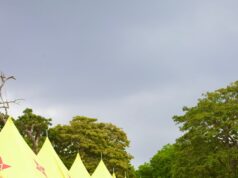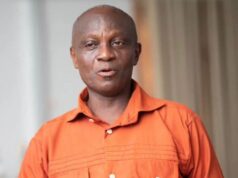The investigator in the murder of Major Maxwell Adam Mahama has testified that his investigations revealed that two of the 14 alleged killers had shot the military officer, while the others had beaten and hit him with cement blocks, sticks and metal rods.
“My investigations into the case revealed that the 10th accused person (Kwesi Asante ) and the 11th accused person (Charles Kwaning) shot the late Major Mahama,” Chief Inspector Samuel Agyakwa told the Accra High Court yesterday during his evidence-in-chief.
When asked by the prosecutor, Mrs Evelyn Keelson, a Chief State Attorney, how he arrived at that conclusion, the police officer said he had watched the videos which showed how Major Mahama was killed and interviewed witnesses and suspects.
Chief Inspector Agyakwa is the 14th and last witness presented to the court by the prosecution to prove its case.
Major Mahama’s murder
Major Mahama was killed at Denkyira Obuasi in the Central Region on May 29, 2017.
He is said to have been lynched as he went on a morning walk that led him to Denkyira Obuasi.
Fourteen people, including William Baah, a former Assembly Member for Denkyira Obuasi, are standing trial in connection with the death of the military officer.
Others are Bernard Asamoah, alias Daddy; Kofi Nyarko, aka Abortion, Akwasi Baah, Kwame Tuffour, Joseph Appiah Kubi and Michael Anim.
The rest are Bismark Donkor, John Bosie, Akwasi Baah, Charles Kwaning, Emmanuel Badu, Bismark Abanga and Kwadwo Anima.
They have all pleaded not guilty to charges ranging from murder, abetment to murder and conspiracy to commit murder.
Videos
Continuing with his testimony, Chief Inspector Agyakwa said all the accused persons, with the exception of William Baah, John Bosie, Bismarck Abanga, Kwadwo Anima and Bismark Donkor, were captured in the videos which showed the killing of the military officer.
According to the witness, one of the videos was five minutes, 20 seconds long, while another was one minute, 20 seconds long.
He added that he copied the videos onto a flash drive after watching them.
The prosecution sought to tender the flash drive as evidence, but defence lawyers raised an objection.
A defence counsel, Mr Theophilus Donkor, argued that the videos must be watched in court to enable the defence team to know its content to aid further objection.
Another defence lawyer, Mr George Benard Shaw, was of the view that the witness was not the author of the original videos and that the videos were got from social media platforms.
Counsel was of the opinion that the defence would be deprived of the opportunity to question the person who actually took the videos if the witness was allowed to tender it.
“It is against the tenet of fair trial to admit the videos when the defence cannot cross-examine the person who actually took them,” he argued.
He further argued that in this digital age and era of fake news, the videos could have been doctored to suit the prosecution’s case.
In her response, the prosecutor argued that copies of the video had already been given to the defence team and, therefore, there was no need to play the videos before they were tendered.
According to her, the videos could be watched in open court only after they had been tendered as evidence.
The court, presided over by Justice Mariama Owusu, a Justice of the Supreme Court sitting as an additional High Court judge, will rule on the objection on February 11, 2020.























